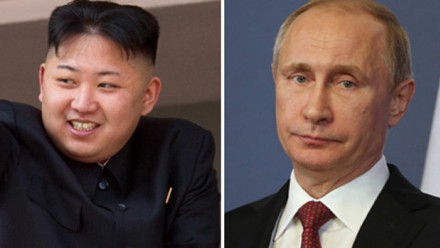The Global Wind Energy Council (‘GWEC’) and WindEurope, are today jointly responding to the IEA’s 10-point Plan to Reduce the European Union’s Reliance on Russian Natural Gas. The report comes at a time of heightened concern over the security and resilience of national and regional energy systems.
The Russian invasion of Ukraine is a tragedy that has initiated a humanitarian crisis. The thoughts of everyone at WindEurope and GWEC are with the people of Ukraine at this time. The situation has highlighted Europe’s dependence on imported fossil fuels – 45% of gas consumed in the region is imported from Russia.
Investment in wind and renewables offers energy independence and reliability. We support the call in the IEA’ s 10-Point Plan for a concerted policy effort among governments to fast-track additional renewable capacity, particularly bringing utility-scale wind projects online within the next year.
The IEA rightfully notes that insufficient permitting continues to be the biggest bottleneck for new energy projects. It creates lengthy lead times, which slows down the deployment of wind energy in countries at all stages of the energy transition. That results in huge volumes of wind generation “stuck in the pipeline”, prolonging dependency on volatile fossil fuels.
“Investment in wind and renewables offers energy independence and reliability.” Global Wind Energy Council and WindEurope Joint Statement on IEA’s 10-point plan to reduce the European Union’s reliance on Russian natural gas
Only streamlined permitting procedures will allow for the acceleration of renewable energy deployment that is urgently needed to increase energy security in Europe and countries around the world. These permitting changes are actions that can be taken now to create an immediate impact for Europe’s renewable energy market.
We also call on countries outside of Europe to take notice and act now to guard against fluctuating fossil fuel prices. Simplified permitting schemes and shorter decision times can support greater acceleration of wind projects worldwide.
Before the invasion of Ukraine, consumers were already feeling the effects of high power prices. Fluctuating gas prices have pushed many households into energy poverty and curtailed economic productivity. The IEA acknowledges that short-term price cushions for consumers are worthwhile to consider, but they shouldn’t be financed by increasing costs on renewable energy when these will undermine renewables production and/or deter new investments.
GWEC and WindEurope do not support the IEA’s idea of temporary tax measures to raise rates on electricity companies’ “windfall profits”.
Europe and other regions need huge investments in renewables to increase energy security now. The EU installed 11 GW of new wind last year when it should be installing 32 GW a year to deliver the 40% renewable energy target. Globally, annual wind installations should be scaling up by 4 times within this decade to get on-track for a 1.5°C scenario. This is the moment for Governments to encourage investments, not undermine them.
National Governments should not resort to taxing infra-marginal rents. Past examples in Spain, Romania, Bulgaria and Italy are resulting in market distortions, deterring investors, and failing to meet the stated objective of protecting consumers – all while at times leading to more emissions. They freeze new investments. Which in turn means less renewables. And less energy security.
“The acceleration of wind energy deployment must be the start of a range of enabling measures that are needed to safeguard the transition from fossil fuels to clean energy.” Global Wind Energy Council and WindEurope Joint Statement on IEA’s 10-point plan to reduce the European Union’s reliance on Russian natural gas
Measures to alleviate the impact of high energy prices on consumers and businesses recovering from the effects of the Covid pandemic should be funded from increased Government revenue from energy taxes at times of windfall profits for fossil fuels companies, as well as carbon pricing instruments such as the EU’s Emissions Trading Scheme. This would put the price burden of continuing carbon-emitting generation on the primary actors, and not those actively investing in clean energy.
The acceleration of wind energy deployment must be the start of a range of enabling measures that are needed to safeguard the transition from fossil fuels to clean energy.
The IEA rightly encourages governments to scale up investment in energy efficiency improvements, grid flexibility and upgrades, demand-side response measures and storage technologies. These investment areas, combined with increased electrification to drive decarbonisation of industry, heating and mobility, can support countries in shifting to cleaner, more secure and more resilient energy systems. Global Wind Energy Council (GWEC) is a member-based organisation that represents the entire wind energy sector. The members of GWEC represent over 1,500 companies, organisations and institutions in more than 80 countries, including manufacturers, developers, component suppliers, research institutes, national wind and renewables associations, electricity providers, finance and insurance companies. Find out more WindEurope is the voice of the wind industry, actively promoting wind energy across Europe. We have over 400 members from across the whole value chain of wind energy; wind turbine manufacturers; component suppliers; power utilities and wind farm developers; financial institutions; research institutes and the national wind energy associations. Find out more


